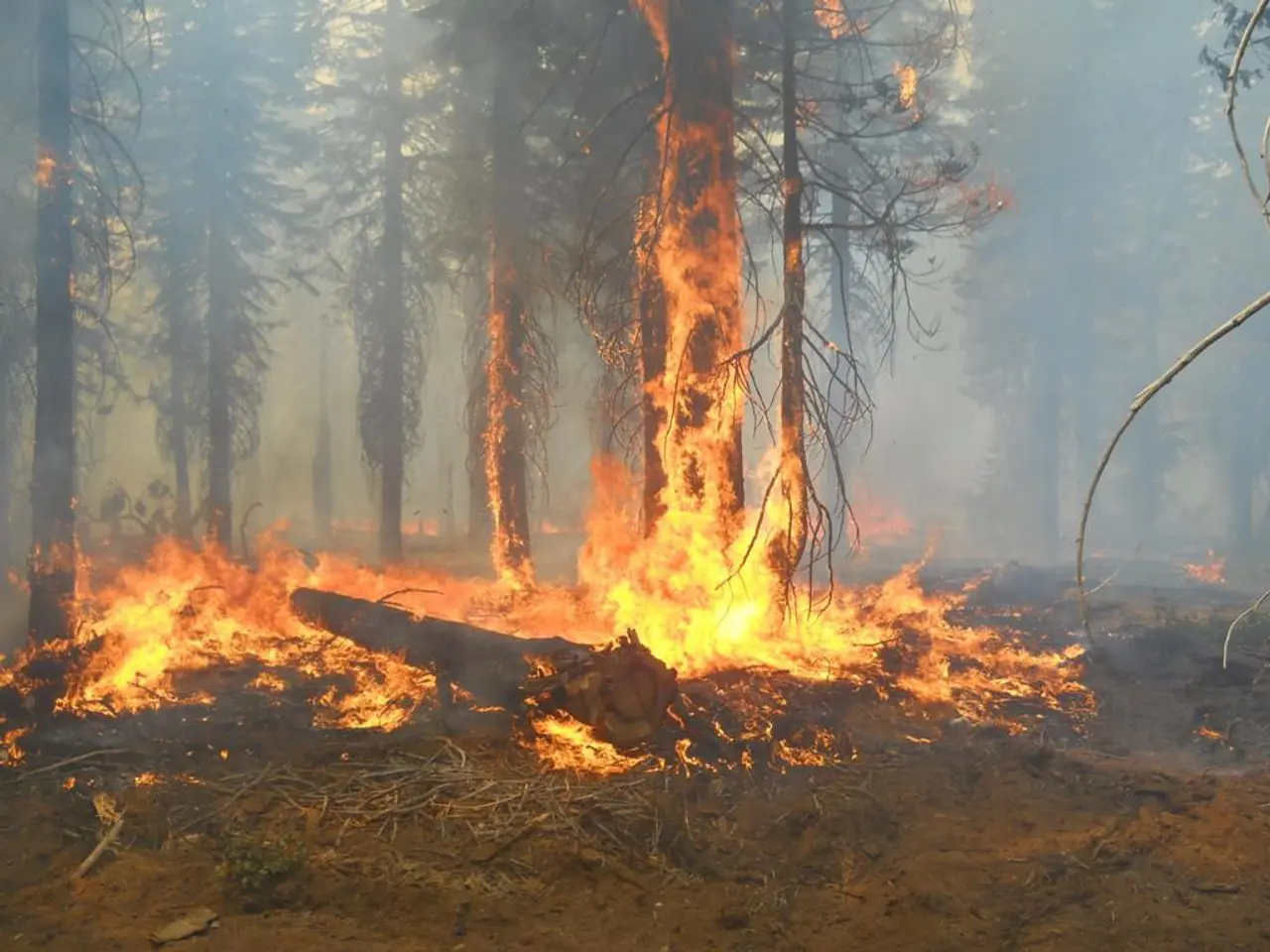Southern Europe and Turkey witness a decrease in fires, yet temperatures soar
Southern Europe and Turkey are currently battling a series of forest fires, with Greece, Portugal, Spain, and Turkey being the most affected countries. The Greek fire service is on high alert due to expected windy conditions in some areas, which can drive flames forward and make extinguishing efforts more difficult.
In Turkey, the forest fires have largely been brought under control as of Saturday, according to the state news agency Anadolu. However, isolated fires were reported in the rural regions of Thrace and Izmir, but they were soon extinguished. Regrettably, at least 14 people, including firefighters, have died in the fires in Turkey this year.
Meanwhile, a fire near the small town of Ponte da Barca in northern Portugal has been raging for days. Elisio Oliveira, head of civil protection in Portugal, stated that the weather conditions are unfavorable for controlling the fire. A second large fire near the Portuguese small town of Arouca has also been brought under control.
In Spain, firefighters in Cuevas del Valle, south of Ávila, received help from unexpected rain, which almost completely extinguished the flames. The environmental department of the regional government of Castile and León described the rainfall as "manna from heaven."
Sardinia also had to deal with several fires this week in Italy. Tension persists in Italy, particularly in the south of the country, with the island of Sicily being particularly affected. High temperatures and dry winds can contribute to small negligences, arson, or a lightning strike developing into fires that are difficult to control.
Over 3,700 fires were recorded between May and late July alone on the island of Sicily, according to the local forestry authority in Italy. More than 2,000 forest fires have broken out in Turkey this year so far, according to the Ministry of Forestry and Environment.
The forest fire risk remains extremely high in the south of the island of Euboea, the east of Crete, and the region around Athens in Greece, despite recent rainfall. The environmental department of the regional government of Castile and León described the rainfall as "manna from heaven."
Current measures to control and prevent forest fires in Southern Europe and Turkey focus on shifting from reactive firefighting to proactive, nature-based solutions combined with improved community engagement and technology. Prominent strategies include restoring and protecting natural forests, wetlands, and grasslands that act as natural firebreaks, replacing flammable exotic species with native, fire-resistant species, and reviving traditional agro-silvopastoral practices to reduce fuel loads and increase biodiversity.
Additionally, controlled burns, creation of firebreaks, improved land-use planning, stronger building codes, public education on fire safety, early warning systems, and enhanced firefighting capacities are key components of prevention efforts especially relevant for the Mediterranean and neighboring regions like Turkey.
The EU and conservation groups advocate redirecting funds away from unsustainable practices, like burning trees for bioenergy, towards these preventative, ecosystem-based measures to reduce wildfire risk and support rural resilience. Increased investments in advanced firefighting technologies and community preparedness aim to bolster response capabilities, though recent outbreaks have shown that even having ample firefighting resources, as in Cyprus, may not suffice without addressing root causes.
Regarding predictions, ongoing extreme heat, drought, and dry conditions fueled by climate change continue to increase wildfire risks and emissions to record highs across Southern Europe and Turkey in 2025, with models indicating that an abundance of fuel and severe weather conditions drive the intensity of the fires. This suggests that without significant and sustained shifts toward the described preventative measures, the frequency and scale of forest fires are likely to remain elevated.
In brief, Southern Europe and Turkey are adopting integrated wildfire management strategies emphasizing ecosystem restoration, fire-smart community development, and improved fire forecasting. However, the recent data indicate a challenging outlook unless investments and policies more urgently pivot to preventive, nature-based solutions alongside enhanced firefighting readiness.
A new heat wave with temperatures over 40 degrees Celsius is expected to affect Portugal and neighboring Spain. Heat helps to dry out vegetation, which then burns like tinder. The ongoing forest fires serve as a stark reminder of the urgent need for action to combat the growing threat of wildfires in the region.
- Despite recent rainfall, the forest fire risk remains high in the south of Euboea, the east of Crete, and the region around Athens in Greece, mirroring the ongoing threat in Portugal and Spain, where a new heat wave with temperatures over 40 degrees Celsius is expected.
- Scientific studies and recommendations suggest that integrated wildfire management strategies in Southern Europe and Turkey need to prioritize ecosystem restoration, fire-smart community development, and improved fire forecasting, alongside enhanced firefighting readiness, to effectively combat the growing threat of wildfires.
- The ongoing forest fires in Southern Europe and Turkey, coupled with the increasing wildfire risks due to climate change, have led experts in environmental-science and general-news to emphasize the urgency of addressing the root causes of wildfires, such as unchecked development, arson, and dry conditions exacerbated by weather, and implementing proactive, nature-based solutions, crime-and-justice measures, and technology for prevention and control.








